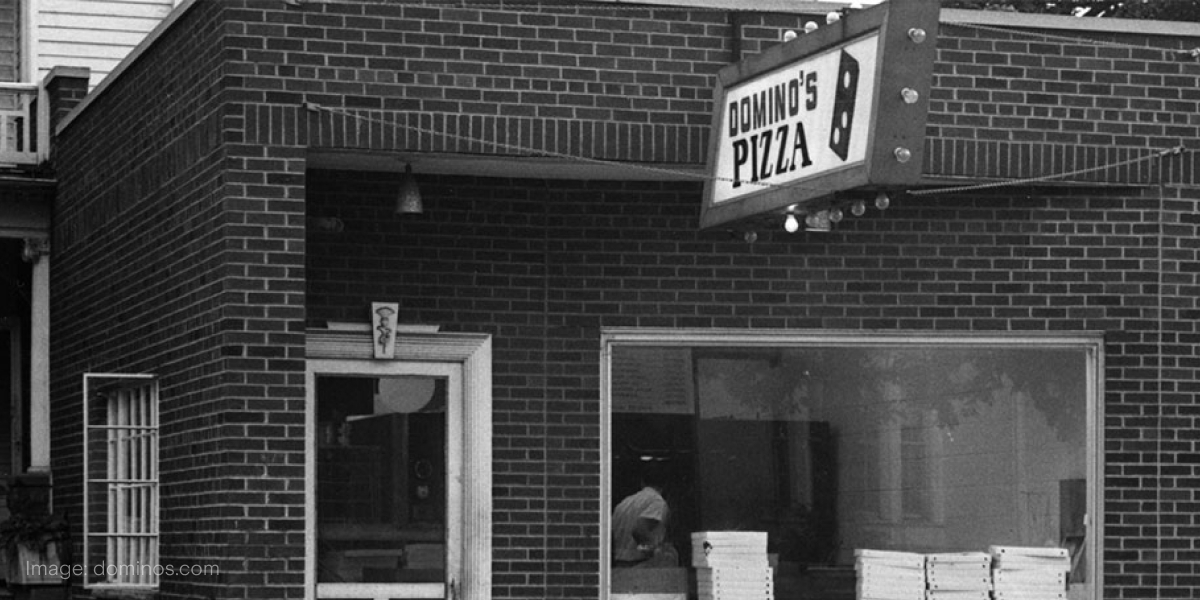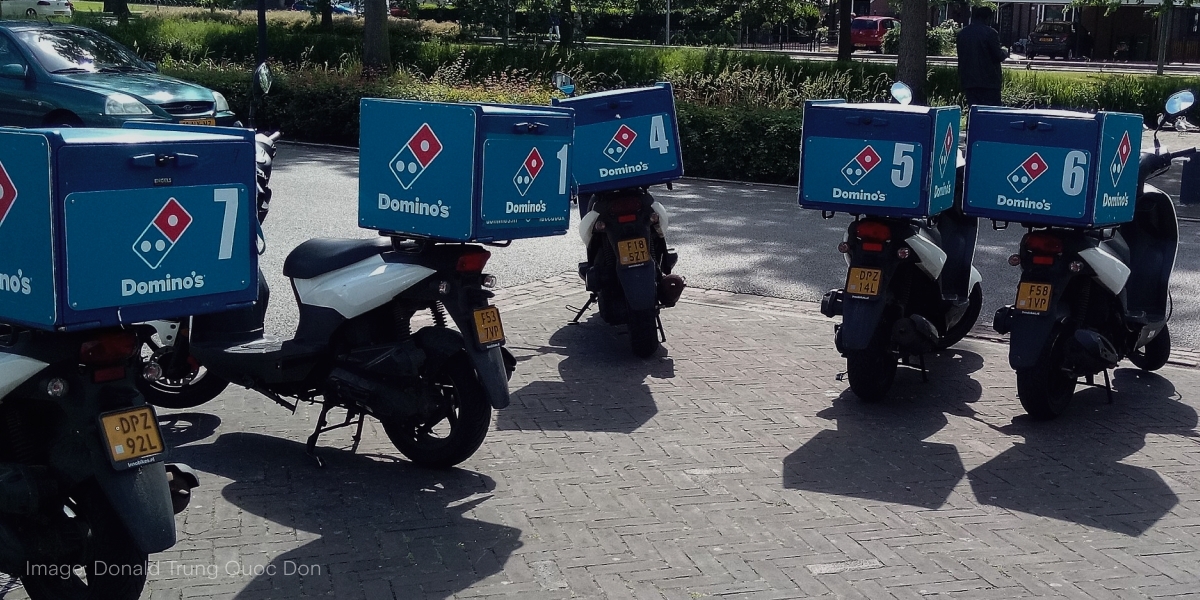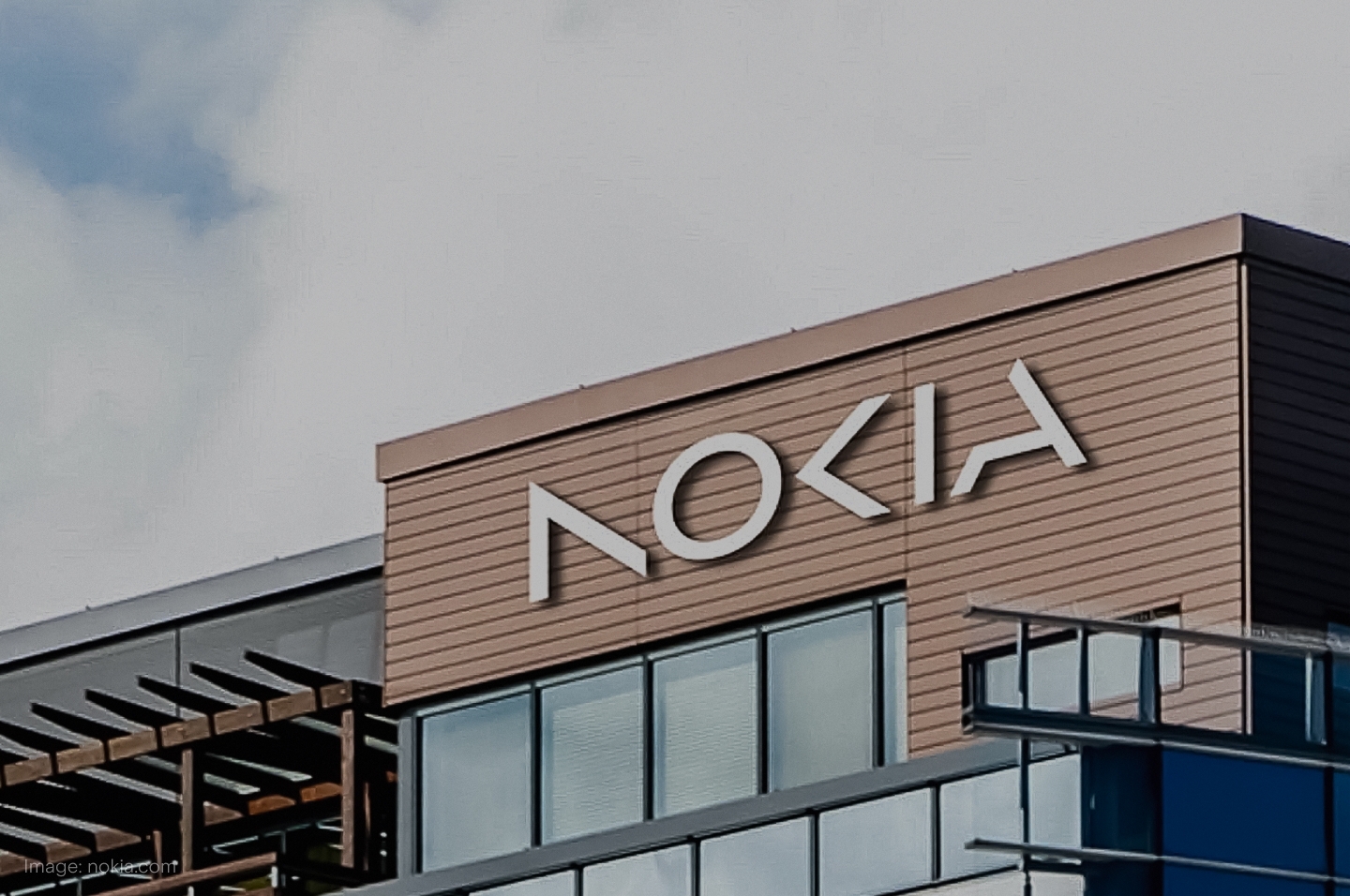
Under the Spotlight Wall St: Domino's Pizza, Inc. (DPZ)
One of the world’s biggest pizza delivery companies, Domino’s took the planet by storm with their 30-minute delivery policy and their crunchy cornmeal crust, but can they continue to grow? Let’s put it Under the Spotlight.

When you think of pizza, chances are Domino's ($DPZ) comes to mind. With over 19,800 locations in more than 90 countries, the pizza chain has become a household name. Domino's is one of the most recognisable brands in the fast-food industry, and it has been serving up hot and fresh pizzas for over six decades. Founded in 1960 by Tom Monaghan and his brother James, the company has grown from a small pizzeria in Ypsilanti, Michigan to a global franchise.
Originally named DomiNick's, the first shop was bought out by Tom from his brother in 1965, in exchange for the VW Beetle they used for deliveries. Tom changed the name to Domino's and began to shape it to become the pizza chain we now know. From the beginning, Tom had big ambitions for the company. He wanted to create a pizza delivery business that was faster and more efficient than anything that had come before. He believed that if he could deliver pizzas quickly and reliably, he could build a loyal customer base and grow the business.
To achieve this, Tom developed a unique delivery system that would become the cornerstone of the Domino's brand. He divided the city into a grid and assigned each delivery driver to a specific area. When a customer placed an order, the driver closest to their location would be dispatched to deliver the pizza, ensuring that it arrived hot and fresh. This system was a huge success, and Domino's quickly became known for its fast and reliable pizza delivery.

Raising some dough
The company began to expand rapidly with the first franchise location opening in 1967 in Ypsilanti. By 1978, there were over 200 Domino's locations throughout the United States. In 1983, the company opened its first international location in Winnipeg, Canada. Throughout the 1980s and 1990s, Domino's continued to expand globally, opening locations in Europe, Asia, and the Middle East.
During that period, the company also introduced a number of new products and services, such as the Domino's HeatWave delivery bag, that kept pizzas warm while en route, and the famed 30-minute delivery guarantee that helped the pizza giant gain market share worldwide. However, the pizza chain faced a number of setbacks, including declining sales and negative publicity around its treatment of employees.
In fact, its 30-minute guarantee eventually turned out to be one of its biggest problems: sometimes delivery drivers were driving recklessly in order to meet the deadline, leading to accidents and injuries. In 1993, Domino's settled a lawsuit for $2.8 million with the family of a woman who was killed by a Domino's delivery driver, which led the company to roll back the 30-minute delivery policy.

A bigger pie
Through the 2000s the company continued to grow, mostly through innovation. In 2004, the company launched an online pizza ordering system, which has since become a standard in the industry. In 2011, they introduced the Pizza Tracker, an online tool that allows customers to track the progress of their pizza order from preparation to delivery.
Yet despite having grown into one of the world’s biggest pizza chains, Domino’s faces concerning challenges should it aim to continue growing up. Even though the U.S. accounts for only roughly a third of its 19,800 stores, they make up for almost 50% of its sales. This makes the U.S. an extremely important market for the company, as Domino’s franchisees have to pay around 10% of its sales in royalties and marketing fees to the parent company.
The American dominance does not indicate that its international business is doing poorly, but rather quite the opposite situation. In the past three years, the number of international stores has shown year-on-year growth nearing the thousand mark, while the U.S. kept growing in the low hundreds. This might imply that the comparatively low volume of sales internationally are due to foreign exchange rates and idiosyncratic features of these countries' economies, especially in emerging markets.
In order to try to squeeze out a little bit more of its U.S. market, Domino’s began to expand its menus to offer sandwiches, pasta and chicken wings. They even went so far as to drop “Pizza” from its name and the restaurants are now only called Domino’s. Whether that will drive to bigger growth and profitability, allowing for the (not) pizza giant to size up against more diversified competitors like Yum! Brands ($YUM) or whether that’ll just be a distraction from its core business, remains to be seen.
For FY 2023, the company expects sales of US$18b to US$19b, a year-on-year increase in the range of 4-8%, while expecting the number of stores to hit between 20,800 and 21,200, a growth of 5-7%.
This does not constitute financial advice nor a recommendation to invest in the securities listed. The information presented is intended to be of a factual nature only. Past performance is not a reliable indicator of future performance. As always, do your own research and consider seeking financial, legal and taxation advice before investing.

